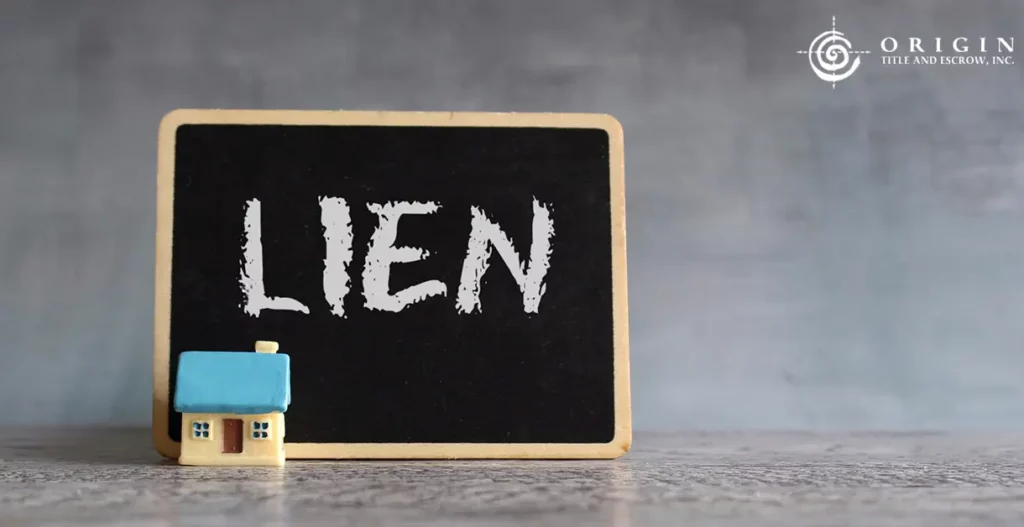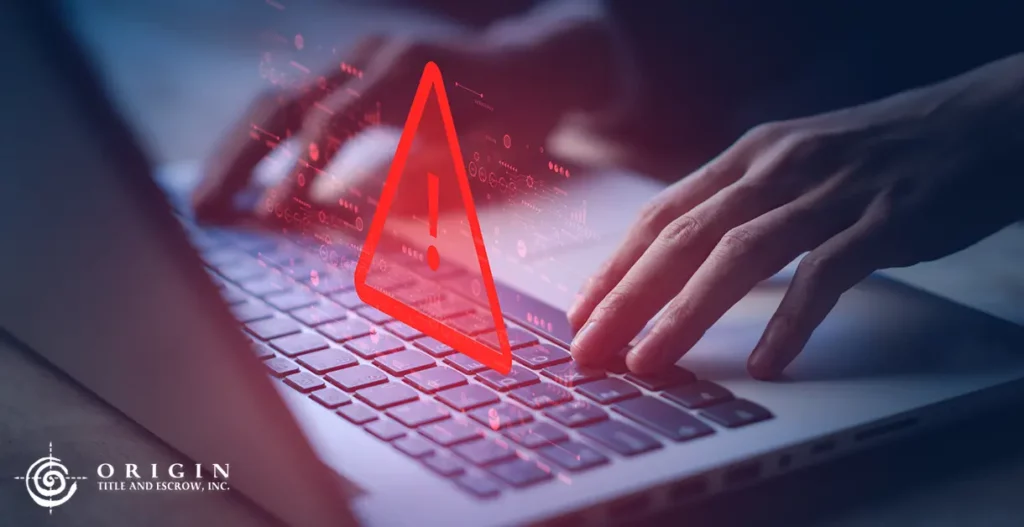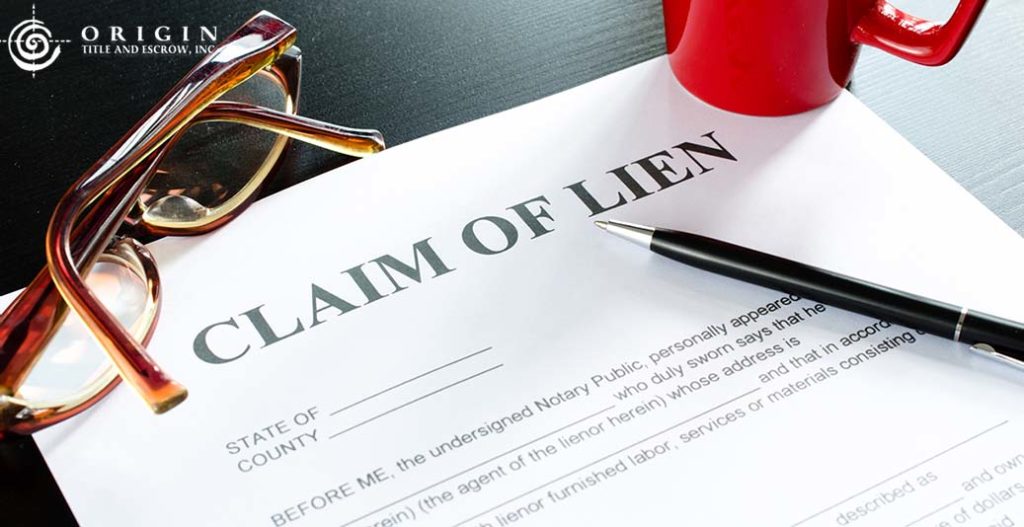Buyer Beware
Buyer Beware: What Do Sellers Have to Disclose in Georgia?
You saved your money for a down payment, got rid of debt to increase your credit score, and found the perfect house for your future. Your agent submitted a bid, your contract was chosen, and now it’s time to inspect the home.
In Georgia, it is your responsibility to do your own due diligence! You can request various inspections to properly assess the home. The two most common ones being a home inspection and a termite inspection. You can also request radon, mold, foundation, soil, chimney and other inspections. Please be aware that you will be responsible to pay all the vendors for the inspections that you request. Ask around and get quotes from several reputable vendors.
Sellers are required to disclose any material defects in the home. Material defects are anything that would pose a safety risk or have an impact on the value of the property. Things like a faulty foundation, electrical, HVAC system…etc. Sellers are also required to disclose the existence of lead-based paint if the home was built before 1978.
Material defects include latent defects in the property. Latent defects are problems the sellers knows about that are not necessarily visible or discoverable in an inspection.
The seller is also required to honestly answer any questions asked about the home. So even if the seller did not disclose a particular issue, you can get another chance by asking them directly about the home and any potential issues with the property. It would be best to ask the question in writing so there is a paper trail of the answer.
The recourse for the buyer after a purchase is a costly and time-consuming lawsuit where you may not win. The lawsuit can be long, expensive, and depending on the repair, may not be worth the costs of the lawsuit. While you may have several assertions against the seller, there is a defense of caveat emptor that will most likely win. Caveat emptor is the legal defense of ‘let the buyer beware’ and the main reason why your due diligence period for inspections is of the utmost importance.
By Christine Fleury
Christine Fleury is a real estate closing attorney with Origin Title and Escrow, Inc. Since 2003, Origin Title has handled real estate transactions – purchases, refinances, reverse mortgages – quickly and professionally. There will be no surprises, nothing misunderstood. Title searches are thorough and well-reasoned, to avoid unpleasant surprises later down the road. Calculate your closing costs in Georgia or Florida using our calculator or contact Origin Title using this form.
Fraud Makes It More Difficult for Everyone
The days of the out-of-state seller arranging their own notary and witness are over. Fraudsters can copy and paste a notary’s signature and stamp on any deed or security deed.
This is a strong reason why a closing attorney needs to be in charge of the full closing process.
Georgia requires that an attorney be present when conveying property. Georgia attorneys have to get documents signed out of state if the seller doesn’t live in Georgia. However, these sellers can not sign documents on their own anymore because there have been so many falsified documents.
Fraudsters look for vacant property without a mortgage and pretend to be the owner. Two noticeable traits of a fraudulent sale are trying to do everything through email or text, and rushing the buyer as if everything needs to be done yesterday. The fraudster wants to rush to keep the closing attorney from reading and noticing any red flags in the transaction.
The closing attorney needs to make sure they hire their own notary to verify the identity of the people signing these documents.
Our office has tools to verify the identities of signers to ensure that transactions are legitimate.
Although fraud has increased the time and cost that it takes to get documents signed, the additional caution has become absolutely necessary.
John C. Bennett is a real estate closing attorney and owner of Origin Title and Escrow, Inc.. Since 2003, Origin Title has handled real estate transactions – purchases, refinances, reverse mortgages – quickly and professionally. There will be no surprises, nothing misunderstood. Title searches are thorough and well-reasoned, to avoid unpleasant surprises later down the road. Calculate your closing costs in Georgia or Florida using our calculator or contact Origin Title using this form.
Title Reversion for Georgia Mortgages
Old security deeds (commonly referred to as mortgages) do not always get released or
canceled as they should. The lender may have failed to file the release, gone out of business, or
may have been purchased by another bank. These old loans can be very difficult to track down.
A security deed is a document conveying a security interest in the real estate to the lender as collateral for a debt. Prior to 1994, any interest conveyed to the lender in a security deed would revert back to the
borrowers 20 years after the maturity date on the Security Deed. If no maturity date was stated,
then the security interest would revert 20 years after the security deed was recorded.
After 1994, Georgia code 44-14-80 states that any interest conveyed in a security deed reverts
back to the borrower seven years after the maturity date, or seven years from the date of recording if no
maturity date is stated in the security deed.
This changes if the lender states in the security deed that it is intended to establish a perpetual
or indefinite security interest in the property. If this language is included in the security deed, the
title would still revert to the borrower seven years after the maturity date, OR 20 years from the date
of conveyance, whichever is later.
Most traditional residential security deeds mature in 30 years. For most loans, if more than seven
years have passed since the maturity date and the loan was recorded more than 20 years ago,
then title has reverted to the borrower and there is no need to get a release.
It is not uncommon for heirs to have to try and track down an old mortgage their parents paid in
full, but have no record of the full payment or release. This can take months to get corrected
without a loan number or something similar to go on.
Always keep your letter of release or document from the lender showing a loan is
paid in full. This will be a tremendous help to your closing attorney if a release was not properly
filed.
John C. Bennett is a real estate closing attorney and owner of Origin Title and Escrow, Inc..
Since 2003, Origin Title has handled real estate transactions – purchases, refinances, reverse
mortgages – quickly and professionally. There will be no surprises, nothing misunderstood. Title
searches are thorough and well-reasoned, to avoid unpleasant surprises later down the road.
Calculate your closing costs in Georgia or Florida using our calculator or contact Origin Title using the form provided.
MV Realty News
Has anyone seen the news about MV Realty and the ‘liens’ they have filed against thousands of homeowners in Georgia? We have run across these filings on a couple closings in our office.
MV Realty will contact a homeowner, usually elderly, and pay them $500 to $2,000 in exchange to agree to have MV Realty be the listing real estate agent on the house, if the owner ever sells it.
What is not made clear to the homeowner is that they are signing a Memorandum of Homeowner Benefit Agreement, which is a document giving MV Realty a ‘covenant running with the land’ for the amount of any commission they may have earned for a term of 40 years.
MV Realty will then only release their claim for $10,000 or $20,000, depending on what they think they may have earned in commission.
Lien laws are not supposed to protect someone from getting what they think they may get in the future on a sale. So the Georgia legislature passed a law this year making the Memorandum of Homeowner Benefit Agreement not enforceable as a lien on the property. The vote in the state senate was 52 to 1. These agreements were so bad, they cut across any political lines.
Never agree to anything for 40 years. It’s better not to agree to anything unless you have talked to an attorney. If you know a real estate agent with questions about liens and agreements, Origin Title and Escrow can help.
John C. Bennett is a real estate closing attorney and owner of Origin Title and Escrow, Inc.. Since 2003, Origin Title has handled real estate transactions – purchases, refinances, reverse mortgages – quickly and professionally. There will be no surprises, nothing misunderstood. Title searches are thorough and well-reasoned, to avoid unpleasant surprises later down the road. Calculate your closing costs in Georgia or Florida using our calculator or contact Origin Title using this form.
Fraud Schemes
I know that as a closing attorney’s office, we ask a lot from buyers and sellers. Fraud makes it difficult for everyone to make sure everything goes smoothly in a closing. Technology has made a lot of things easier, but also easier to commit fraud in many instances.
We have to be on the lookout for bogus invoices, phishing emails, spoofed phone numbers, fraudulent emails, fake payoff instructions, and of course, fake wire instructions being sent to buyers. Fraud and criminals ruin a lot of things that were once easy.
I remember being able to pump gas and then pay afterwards. Enough people stole gas and drove off without paying, so now everyone has to prepay. Emails were once an easy way to send information. Now we have to make sure everything is encrypted and verified.
Your closing attorney should be verifying everything, even if it annoys you. I apologize in advance for asking for buyers’ and sellers’ correct email addresses and cell phone numbers, and then double checking everything. In the end, we are protecting everyone’s interests in the closing process to make sure nothing is stolen.
John C. Bennett is a real estate closing attorney and owner of Origin Title and Escrow, Inc.. Since 2003, Origin Title has handled real estate transactions – purchases, refinances, reverse mortgages – quickly and professionally. There will be no surprises, nothing misunderstood. Title searches are thorough and well-reasoned, to avoid unpleasant surprises later down the road. Calculate your closing costs in Georgia or Florida using our calculator or contact Origin Title using this form.
Beware of Deed and Home Warranty Scams
When you purchase real estate or take out a mortgage, the vesting deed and security deed are recorded in the county’s real estate records, which are open to the public. The information made public is the purchase price, loan amount, and names on title. The real estate documents do not disclose the terms of your mortgage, like interest rate or monthly payment amounts, however.
A few bad actors use this public information to generate misleading letters and fake invoices to the homeowners. This has been going on for years.
These letters are usually marked as “Urgent” or “Final Notice” to incite panic in the homeowner to get them to act without thinking. The most common scam is a letter charging you to get a certified copy of your deed for $80 to over $100. Only the fine print will state that the company selling the certified copy is NOT affiliated with any government agency, and it is not an invoice. Yet the notice is formatted to look exactly like an invoice, even including a payment coupon.
Do not pay $80 or more to any company to get a certified copy of your deed. As a buyer, you will receive the original recorded deed, (and title insurance policy if you purchased title insurance), shortly after closing without any additional costs. If you ever need a certified copy, clerks usually charge less than $5 to provide one.
A newer scam is to find people who have owned their home for about a year and send out a “Final Renewal Notice” for a home warranty. It is not a renewal at all, but an offer to enroll in a home warranty program. The mailing hopes to get people who had a home warranty to enroll with this new company. The notice will have “Immediate Response Requested”, or “Please Call Immediately”, and other statements on the document to put as much pressure as possible on the homeowner to just sign and send in the voucher. The voucher requires a signature, which enrolls the person in a new home warranty program.
The whole point of these notices is to get people to sign up without providing the coverage information of the home warranty. The mailing about the “Home Warranty” does not even provide the name of the home warranty company or the cost of the warranty.
Do not sign any notices or forms without reading them carefully and knowing who sent the document.
John C. Bennett is a real estate closing attorney and owner of Origin Title and Escrow, Inc.. Since 2003, Origin Title has handled real estate transactions – purchases, refinances, reverse mortgages – quickly and professionally. There will be no surprises, nothing misunderstood. Title searches are thorough and well-reasoned, to avoid unpleasant surprises later down the road. Calculate your closing costs in Georgia or Florida using our calculator or contact Origin Title using this form.
Junk Fees Revisited
One of the many ways closing attorneys increase their fees is by passing costs on to buyers and sellers for incidental costs of doing business, such as copying, recording, overnight mailing, or banking services. When quoting their closing costs, many attorneys omit these items, so they come as a surprise right before closing.
Some added costs are reasonable if needed to accommodate a buyer or seller, depending on the situation. Drafting and recording a Power of Attorney will be an extra cost, for example. Overnighting lien payoff checks or tax payments due the next day will incur extra costs. Some attorneys need to collect money to cover the fees they pay to their bank.
Banks do charge for wires, but usually no more than $30. Attorneys pass this cost on to buyers and sellers. Some attorneys increase the fee to $50 or $75 to collect extra money from the closing. Wires are quicker and safer than handing out large checks to sellers or sending payoffs.
The same thing happens for e-recording services, scanning services, wire confirmation, reconciliation services, and so on. These services are very helpful and they save the attorneys a lot of time. In addition to saving time, many attorneys use these fee charges to increase their own revenue. Charging a client $75 for a wire is not ethical when the bank charge is $25. Disbursing funds to the seller is part of the settlement fee and should not have an additional cost.
Make sure any quote you get from a closing attorney includes everything. It’s not less expensive if the settlement fee is $300, but you have to pay to use the pens, receive funds, for the attorney’s reconciliation services or wire verifications, or to receive copies of anything.
John C. Bennett is a real estate closing attorney and owner of Origin Title and Escrow, Inc.. Since 2003, Origin Title has handled real estate transactions – purchases, refinances, reverse mortgages – quickly and professionally. There will be no surprises, nothing misunderstood. Title searches are thorough and well-reasoned, to avoid unpleasant surprises later down the road. Calculate your closing costs in Georgia or Florida using our calculator or contact Origin Title using this form.
Do-It-Yourself Real Estate
What are some things you regret trying to do yourself? Do you change your own oil? Fill your own cavities? Prepare your own will? or draft your own property deed?
Sometimes when you do things yourself, if you do it wrong, the worst is that you’ll need to fix your mistakes. If you don’t replace the air filter correctly, your AC won’t be as efficient.
The risk of doing these things, and what you might have to fix, varies. If you fail to give the executor of your will the power to sell real estate, it will take extra time and money to get permission from the court to sell any real estate.
If you prepare your own deed, your notary may not execute the official witness section properly and the deed will fail, and then you don’t own the house.
You may notice that every form or article about real estate law online will include a disclaimer to check with your local real estate attorney.
If your neighbor is buying a house without an agent, suggest a call to Origin Title. Our attorneys will prepare the contract and make sure the sale is completed correctly.
John C. Bennett is a real estate closing attorney and owner of Origin Title and Escrow, Inc.. Since 2003, Origin Title has handled real estate transactions – purchases, refinances, reverse mortgages – quickly and professionally. There will be no surprises, nothing misunderstood. Title searches are thorough and well-reasoned, to avoid unpleasant surprises later down the road. Calculate your closing costs in Georgia or Florida using our calculator or contact Origin Title using this form.
Fixtures as Collateral?
You can borrow against almost anything. Sandwiched in the gray area between “real estate” and “personal property” is something called a fixture. A fixture is something you can buy and attach to real estate or a house, like an air conditioner.
Origin Title sees a few cases like this every year: the homeowner had a Uniform Commercial Code filing, or UCC Fixture filed against them for an air conditioner. This means the homeowner used the air conditioner as collateral for the loan. If they default on the loan, the company can come and essentially repossess the air conditioner. It’s a pain, but it can be removed from the house.
UCC filings have to be paid in full when refinancing or selling the house, just like a mortgage.
____
John C. Bennett is a real estate closing attorney and owner of Origin Title and Escrow, Inc.. Since 2003, Origin Title has handled real estate transactions – purchases, refinances, reverse mortgages – quickly and professionally. There will be no surprises, nothing misunderstood. Title searches are thorough and well-reasoned, to avoid unpleasant surprises later down the road. Calculate your closing costs in Georgia or Florida using our calculator or contact Origin Title using this form.
Can You Purchase Property With a Lien Filed Against You?
The answer most of the time is yes, even if it is an IRS lien. A buyer with a lien is not a deal-killer.
Purchase money mortgages take priority over judgment liens and state income tax liens. The Federal tax code even puts the IRS behind a purchase money mortgage.
Some attorneys would not close the sale with an IRS lien filed against the buyer. To keep them on schedule to close the next day, we explained how we could insure title to the lender and buyer, even with an IRS lien, and they closed as scheduled.
Buyers still must be searched for liens, because we don’t want to surprise them if they ever go to refinance or sell their property. Those liens then would have to be paid in full at or before closing.
John C. Bennett is a real estate closing attorney and owner of Origin Title and Escrow, Inc.. Since 2003, Origin Title has handled real estate transactions – purchases, refinances, reverse mortgages – quickly and professionally. There will be no surprises, nothing misunderstood. Title searches are thorough and well-reasoned, to avoid unpleasant surprises later down the road. Calculate your closing costs in Georgia or Florida using our calculator or contact Origin Title using this form.










